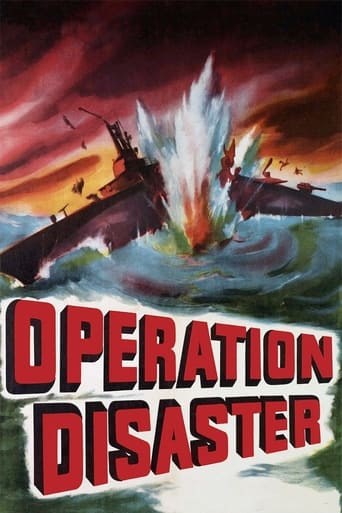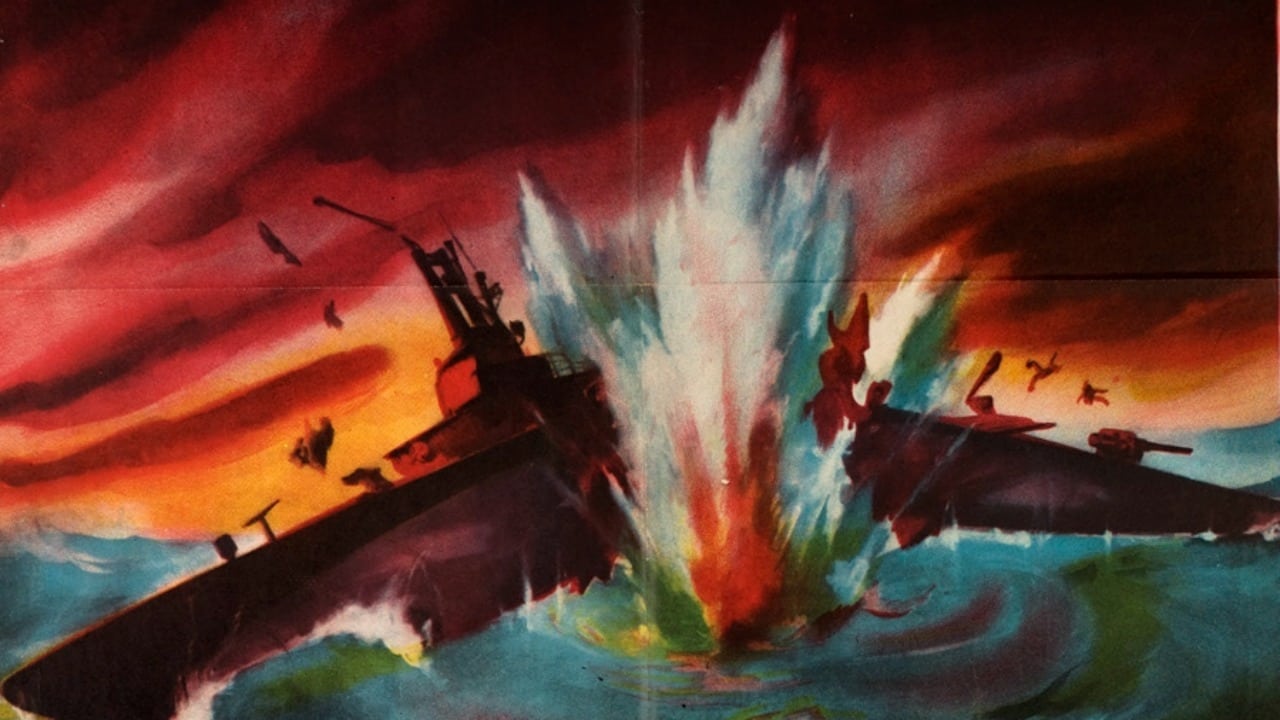tomsview
I always found this well-made film quite depressing. There is much to admire, but I think you have to be in the mood for it.Although it is set after WW2, I always think of it as part of that group of British war films made during the 1950s: 'Reach for the Sky", "The Cruel Sea", "The Dam Busters" etc.Growing up in the 50's, I remember them well. They had a different vibe to the typical Hollywood war films; a sense of discipline and sacrifice always came through. The music alone was distinctive with scores by the best British composers – nearly always conducted by Muir Mathieson. You could tell from the opening bars that it was a British film.They featured familiar actors who appeared in film after film. "Morning Departure" would be hard to beat for familiar faces: John Mills, Nigel Patrick, Kenneth More, Richard Attenborough, Bernard Lee, George Cole, Victor Maddern, even Michael Caine in an uncredited role as Teaboy."Morning Departure" is the fictional story of the sinking of HMS Trojan, a submarine on a routine patrol. We get a little background on the Captain, Lt. Commander Peter Armstrong (John Mills) and a few of the crew.When the sub meets with an accident, the story concentrates on 12 survivors who are trapped in a small section of the sub. The feeling of claustrophobia is palpable. They expect a rescue mission to be launched, but they only have a limited number of escape vests – the crux of the story is how these men from various levels of British society behave under great stress.The famous British stiff upper lip was in evidence in just about all those films of the 1950's, but especially so in "Morning Departure".The interesting thing was that the audience readily accepted the calm stoicism shown by the fictional Commander Armstrong and the crew. That's because the Royal Navy had built up so much equity in the tradition of grace under pressure.There were plenty of examples in the war just fought, but one only needs to look to the wreck of HMS Birkenhead in 1852 to see the full flower of a tradition that probably even predates that episode."Morning Departure" is a sad story ultimately made bearable by the uplifting spirit of the doomed men.James A Michener once wrote (of those British soldiers and sailors on the Birkenhead), "This, after all, is the way men should behave in time of peril at sea".
Anthony Mantle
I first saw this movie at the time of its original release, & it has remained in my memory quite indelibly. Particularly as one of your submissions referred to the sinking of an actual British submarine at the time of the release of "morning departure". HMS "Truculent" was the name of that submarine & the nation was very somber, but I believe the the movie realistically brought home to the public what these submariners went through. My father had served in the Royal Navy during WWII on Destoyers & had his ship sunk under him while in the Mediterranean. So I appreciated the fine acting & portrayal of the courage of the men in the Royal Navy. John Mills always epitomized the character of the rolls he took & this was one of his best for me, except for maybe Scott of the Antartic, but that's another story.
Irving Warner
A Rank production, with passable production quality and excellent acting. Much stock footage and a healthy amt. of rear projection, par for keeping costs down on Rank dramatic quickies. Since the screenplay was adapted from a play, its stage origins are still somewhat apparent. The performances of Mills, and a very young Attenborough, plus seemingly one-half the J.R. Rank stable of regulars are very good. The sets and costumes were surprisingly ratty--long in the tooth! Still, this is only a few years after the war, and things were still very hard-up in England. Ultimately, this is a "talker" and not an "actioner", and it does fairly well for all that, though not spectacularly so. The ending, to me, disappointed. I do recommend this for classic movie fans.
johnfadrian
I saw this in first run when I was about 7 years old. It was on a double bill with a Francis the Talking Mule film. My older sister made a deal with me: She'd sit through Francis if I'd sit through OPERATION DISASTER.I remember nothing of the Francis film, but scenes from this film are still vivid in my memory. In the late 1950s John Mills was a guest on the JACK PAAR SHOW and spoke of how life imitated art in that a British submarine was lost in the North Sea under very similar circumstances to those portrayed in the film between the completion of shooting and release in the UK. He said there was criticism in the British press at the time for it's release.I wish it was available on VHS or DVD in the Unites States, but I haven't been able to find it. I would love to see it again.


 AD
AD


